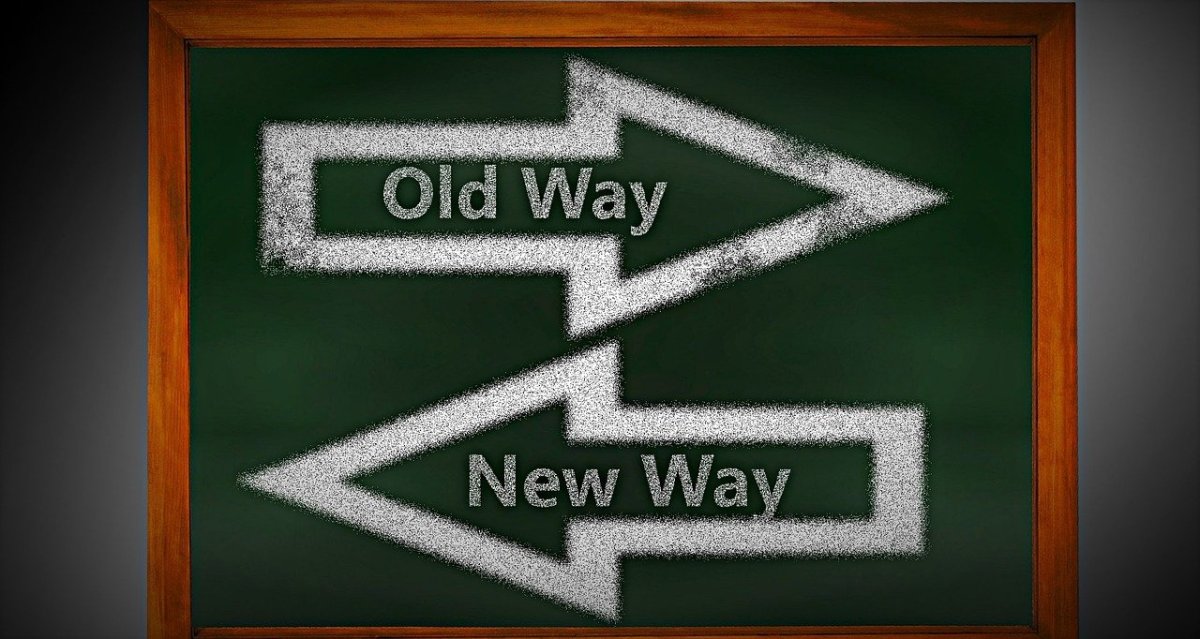
Working in EdTech, change has always been a central part of what I do. Whether this is the technical side of things when introducing new technologies or building a new school, or the human behaviours side of things in relation to identifying the need for change or supporting staff through change.
Both personally and professionally the last 6 months have presented me with lots to think of in relation to change, both personally and professionally, and it has struck me how difficult change is.
I started this new academic year with “Entropy” as one of the key words for my department. This felt right given the unanticipated changes that Covid19 has brought about which have impacted on EdTech use within schools in particular. Put in simple terms Entropy is the concept that all systems tend towards disorder, and therefore we need to constantly exert effort to maintain order. (Note: I am no physicist so the above may not be 100% technically correct however I think it fits with the overall concept). As we are constantly exerting effort to maintain the current level of order, to maintain the processes, systems, etc, we have in place, the whole thought of introducing our own change with its inevitable disorder is one I believe we naturally withdraw from at an instinctual level.
Taken on a more cognitive level and looking at things more rationally, when faced with change we often seek to look at the pros and cons, creating two lists to see which is longer. The issue here is we can say with reasonable certainty how things are now. We are experiencing the now, can touch, taste and feel it. When reviewing the potential changed state however we are predicting how things might be after change and therefore our views are all probabilities rather than certainties. A rational evaluation would then lead to a comparison of known values versus the probability of some lesser know values. From a rational viewpoint the status quo will largely win out.
Also, when reviewing the now, and where presented with significant change, we may over value the positives of our current situation due to our instinctual reaction to change. This leads to negatives within our current situation being disregarded or overlooked, painting a rosier view of how things are now. In turn, this makes it more likely for us to again adopt the status quo.
We also believe in the certainty associated with our current situation, that this situation will continue as is. We see safety in this. This fails to address Entropy and the fact we live in an uncertain world. Who would have predicted Covid19 and all its many impacts a year ago? We believe in the certainty of how things are now and often do not give sufficient consideration to how this could easily change over time, with a number of small changes adding up to a cumulatively large change, or in one sudden upheaval such as that brought about by Covid19. Our current situation is by no-means guaranteed to continue.
The above all seems to point to a definite reluctance to change and in my experience the more people involved the more this reluctance will manifest itself. In a meeting of 3 or 4 people it might be possible to see the benefits of change, of a new system or new process, but as soon as this change impacts of a wider number of people it becomes significantly more difficult. We need something additional to make or even push change to happen.
We need a catalyst for change. In our organisations this might be an external pressure or event, such as Covid19 which has certainly been a catalyst for lots of change this year. It could be a senior staff member or group of senior staff members pushing change from the top of an organisation. It could equally be a ground swell or grass roots movement of staff pushing for and wishing to see change. In our personal situations it could equally be an external event, or it could be from within us as individuals. We often need to be our own catalyst.
Thinking about change I have came to a couple of conclusions;
- Change is inevitable; Entropy suggests change is constant so even when we think things are remaining constant, either we are working very hard to keep them this way, or we are simply unaware of the changes which are occurring. We shouldn’t be overly worried of change.
- Individually and collectively we will either tend towards or away from risk and inversely towards or away from the status quo. This is a tendency, and some have stronger tendencies than others; my tendency towards enjoying new challenges is the same tendency as someone who likes to skydive or swim with sharks however, I would suggest the magnitude is different. We all however need to be concious of this tendency and its impact in biasing our decision making and actions.
- Change is always a struggle; Change always introduces unknown factors and therefore no matter how well we plan there will always be a sense of anxiety or insecurity associated with it. As such change elicits an emotional response in all those involved, and we need to be concious of this response and seek to manage it accordingly.
- But without change we don’t improve; This always makes me think of the “doing the same things but expecting different outcomes”; Unless we change the inputs or the process, the outputs won’t change. We therefore need to be more embracing of change.
Am not sure whether writing this or spending time thinking about change will have helped me with the changes both currently in front of me or those potentially in front of me for which I need to reach a decision. If not me, maybe it will help others who are equally struggling; I am not sure. The one thing I am sure of is that change is not easy, BUT it is an important part of life.



 Think of any change related project which you have been involved in and you will be able to appreciate the clear path between the starting point and the end point. This is just how we remember things.
Think of any change related project which you have been involved in and you will be able to appreciate the clear path between the starting point and the end point. This is just how we remember things. It was almost 7 years ago that, following accepting an educational consultancy post in the UAE, that I flew from Manchester in the UK to the UAE for the first time. As an inexperienced flyer I was racked by nerves regarding the flight, regarding my new job, regarding relocating myself and my family from the UK to the UAE, regarding how I would adapt to a foreign culture and regarding a multitude of other things. It hasn’t been until today some 7 years later that I have came to reflect on how I felt back then.
It was almost 7 years ago that, following accepting an educational consultancy post in the UAE, that I flew from Manchester in the UK to the UAE for the first time. As an inexperienced flyer I was racked by nerves regarding the flight, regarding my new job, regarding relocating myself and my family from the UK to the UAE, regarding how I would adapt to a foreign culture and regarding a multitude of other things. It hasn’t been until today some 7 years later that I have came to reflect on how I felt back then.